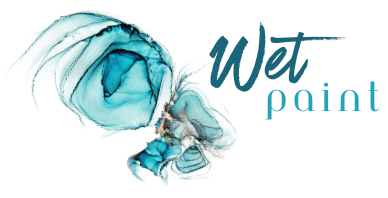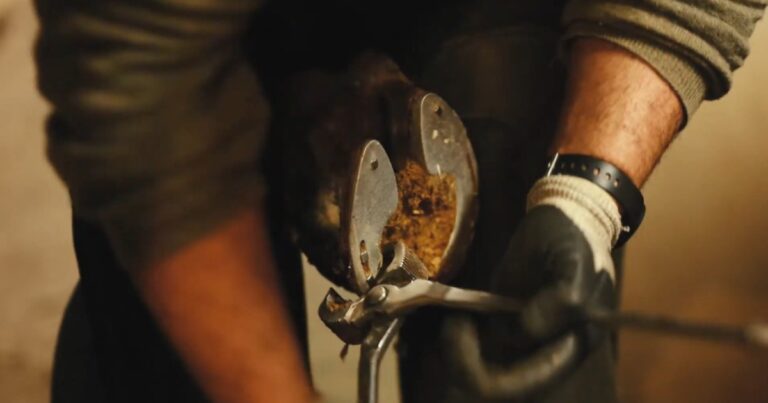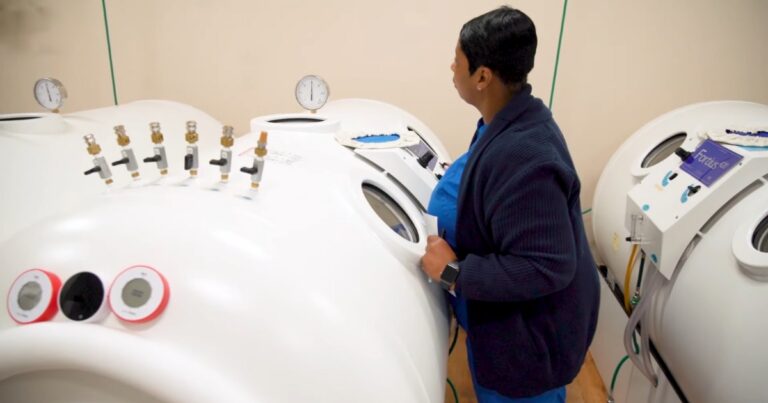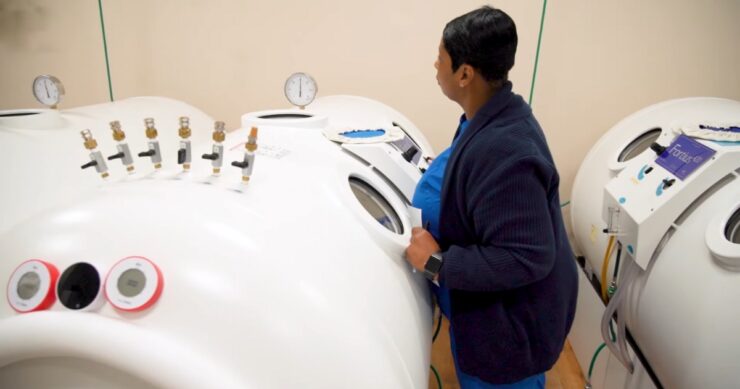Hoof health is a fundamental aspect of equine care, pivotal to a horse’s overall well-being and performance. The condition of a horse’s hooves can dramatically impact their comfort, mobility, and ability to perform tasks, whether in competitive sports or daily activities.
This article delves into the intricate relationship between hoof maintenance, diet, and the role of dietary supplements in promoting and sustaining hoof health. It provides insights and practical advice for horse owners and caregivers, emphasizing the importance of a comprehensive approach to hoof care.
The Complex Nature of Hoof Composition
A horse’s hoof is not merely a hard, lifeless structure. It is a dynamic and complex part of their anatomy, primarily composed of keratin, the same protein found in human hair and nails. This similarity underscores the need for specific nutrients to ensure that a horse’s hooves remain strong, resilient, and healthy.
Understanding the composition and growth cycle is crucial in recognizing the importance of nutrition and supplements in equine care. The hoof’s ability to withstand the stresses of daily activities and environmental challenges largely depends on its health at a microscopic level, influenced significantly by the horse’s diet and lifestyle.
Essential Nutrients for Optimal Hoof Health
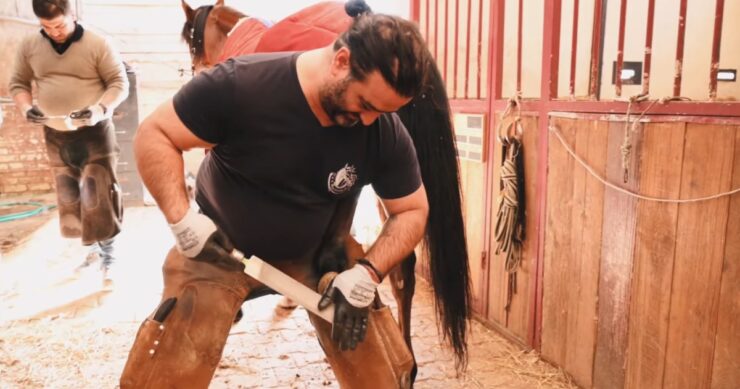
In the context of health, certain nutrients play critical roles. Biotin, a B vitamin, is renowned for its contribution to the formation and maintenance of keratin structures, thus directly influencing strength and integrity. Methionine, an essential amino acid, supports the development of strong, durable hoof walls, vital for protection and function.
Minerals like zinc and copper are also integral; zinc plays a role in keratin production, enhancing the hoof’s structural integrity, while copper is involved in the formation of collagen, a key component of the connective tissues.
These nutrients, when deficient in a horse’s diet, can lead to weakened hooves, making them prone to cracks, splits, and other issues. Check here for more on nutrients and hoof health.
Impact of Dietary Supplements
Dietary supplements have become an essential component in equine hoof care. They are specifically designed to address potential deficiencies in a horse’s diet, offering targeted nutrition that focuses on enhancing growth and health. These supplements often contain a blend of biotin, amino acids, minerals, and sometimes herbal components, all formulated to support growth and structural integrity.
Their role is not to replace a balanced diet but to complement it, ensuring that horses receive the full spectrum of nutrients required for optimal health. Supplements can be particularly beneficial for horses with existing hoof problems, those recovering from hoof-related injuries, or horses exposed to challenging environmental conditions that can adversely affect hoof quality.
Choosing the Right Supplement for Your Horse
Selecting the right supplement for hoof care is a decision that should not be taken lightly. It requires a thorough understanding of the horse’s overall diet, existing health conditions, and specific issues. The choice of supplement should be based on a comprehensive evaluation of the horse’s needs, considering factors like age, activity level, and the quality of their basic diet.
Consulting with a veterinarian or an equine nutritionist is highly recommended to ensure that the chosen supplement effectively complements the horse’s dietary needs and addresses any specific deficiencies or health concerns. The market offers a wide range of supplements, each with its unique formulation and purpose, making professional guidance invaluable in making an informed choice.
Balancing Diet and Supplements for Holistic Hoof Care

While supplements play a significant role in promoting hoof health, they should be part of a holistic approach that includes a balanced diet, regular hoof care, and appropriate environmental management. A horse’s diet should provide a broad range of nutrients, including quality forage, grains, and access to fresh water.
Regular care, including trimming and, if necessary, shoeing, is crucial to maintain the correct hoof shape and function. Additionally, environmental factors such as the type of bedding, cleanliness of the stable, and the nature of the terrain the horse is exposed to, all contribute to hoof health. Supplements should be seen as a component of this wider care regimen, complementing rather than replacing other essential aspects of equine care.
The Role of Professional Care
Professional care, including regular trimming and shoeing by a qualified farrier, is essential in maintaining healthy hooves. A farrier can address specific issues, ensure proper hoof balance and alignment, and recommend changes in care routines or dietary adjustments.
They are also valuable resources for identifying early signs of hoof problems and can work in conjunction with veterinarians and nutritionists to provide a care plan. Regular visits from a farrier, typically every 6 to 8 weeks, are crucial for keeping hooves in optimal condition.
Understanding the Limitations of Supplements
While supplements are valuable in promoting hoof health, it’s important to understand their limitations. Supplements cannot correct structural problems or replace the need for proper hoof care and a balanced diet. They are not quick fixes for serious hooves problems.
Instead, they should be viewed as part of a long-term strategy for maintaining hoof health. It’s also crucial to be aware of the potential for over-supplementation, which can be just as harmful as a deficiency. Adhering to recommended dosages and seeking professional advice before making changes to supplement routines is vital.
The Future of Hoof Care and Nutrition
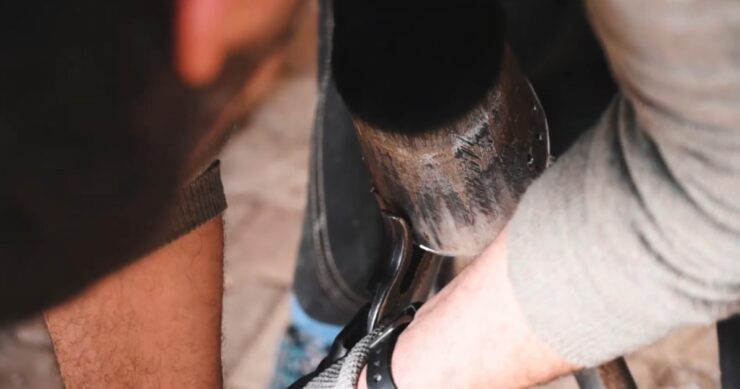
The field of equine nutrition and hoof care is continually evolving, with ongoing research contributing to a deeper understanding of how diet affects its health. Future advancements may bring more tailored supplement formulations, addressing specific issues more effectively.
There’s also a growing interest in natural and holistic approaches to hoof care, focusing on the overall lifestyle and environment of the horse, alongside traditional methods. Staying informed about the latest research and developments in equine care can help horse owners make the best decisions for their animals.
End Note
Effective care is a multifaceted endeavor, requiring a balance of proper nutrition, dietary supplements, professional care, and appropriate environmental management. Understanding the complex nature of hoof health and the role of various nutrients and supplements is crucial for any horse owner.
By adopting a comprehensive, informed approach to hoof care, horse caregivers can ensure their equines not only maintain healthy hooves but also enjoy a high quality of life and optimal performance.
Related Posts:
- Wallpapers and Their Role in Interior Design A Guide…
- Tips and Tricks for a Seamless Website and Content…
- What Is Diamond Painting? Tips and Tricks for a…
- OSRS Money-Making Tips and Tricks: Epic Secret for…
- How Often to Run Robot Vacuum: A Guide to Effortless…
- Catering Equipment Maintenance Tips: Prolonging the…
